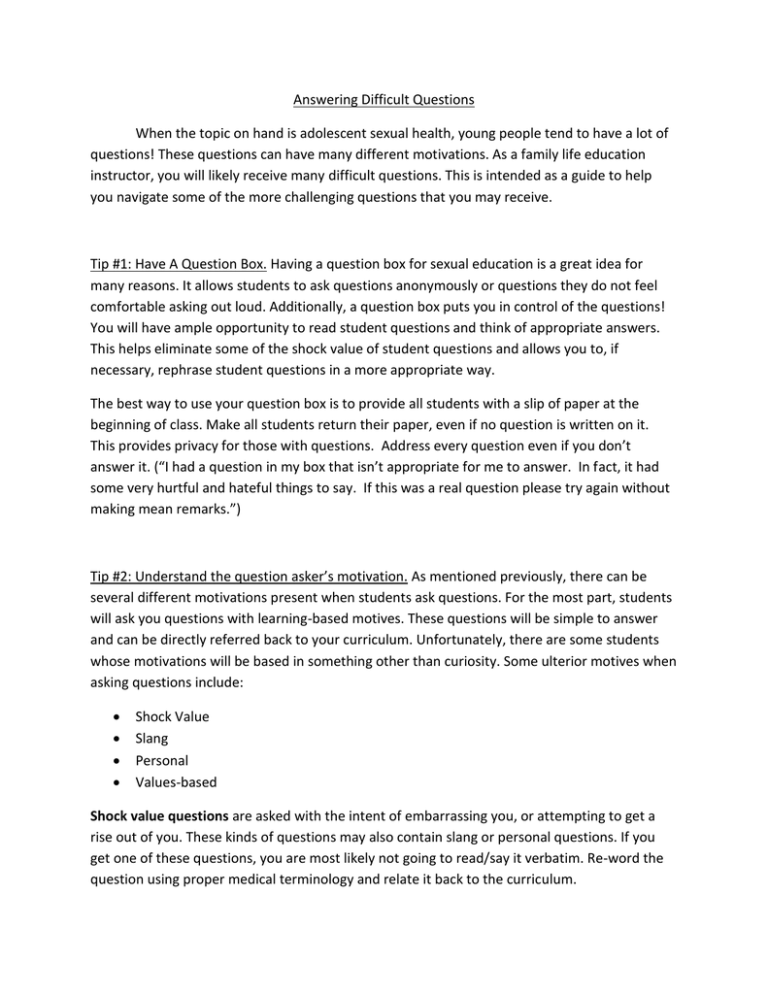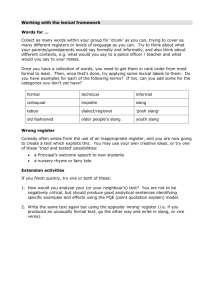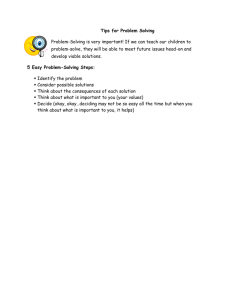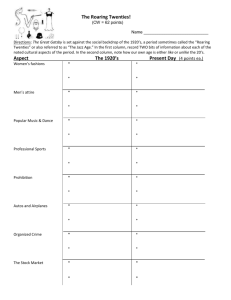
Answering Difficult Questions
When the topic on hand is adolescent sexual health, young people tend to have a lot of
questions! These questions can have many different motivations. As a family life education
instructor, you will likely receive many difficult questions. This is intended as a guide to help
you navigate some of the more challenging questions that you may receive.
Tip #1: Have A Question Box. Having a question box for sexual education is a great idea for
many reasons. It allows students to ask questions anonymously or questions they do not feel
comfortable asking out loud. Additionally, a question box puts you in control of the questions!
You will have ample opportunity to read student questions and think of appropriate answers.
This helps eliminate some of the shock value of student questions and allows you to, if
necessary, rephrase student questions in a more appropriate way.
The best way to use your question box is to provide all students with a slip of paper at the
beginning of class. Make all students return their paper, even if no question is written on it.
This provides privacy for those with questions. Address every question even if you don’t
answer it. (“I had a question in my box that isn’t appropriate for me to answer. In fact, it had
some very hurtful and hateful things to say. If this was a real question please try again without
making mean remarks.”)
Tip #2: Understand the question asker’s motivation. As mentioned previously, there can be
several different motivations present when students ask questions. For the most part, students
will ask you questions with learning-based motives. These questions will be simple to answer
and can be directly referred back to your curriculum. Unfortunately, there are some students
whose motivations will be based in something other than curiosity. Some ulterior motives when
asking questions include:
Shock Value
Slang
Personal
Values-based
Shock value questions are asked with the intent of embarrassing you, or attempting to get a
rise out of you. These kinds of questions may also contain slang or personal questions. If you
get one of these questions, you are most likely not going to read/say it verbatim. Re-word the
question using proper medical terminology and relate it back to the curriculum.
Example: Do you spit or swallow? (This question contains both shock and personal elements.)
Answer: (Do not read verbatim if from the question box.) There was a question in the box
about oral sex. I’m going to answer it by reminding you that any type of sex where fluids, such
as semen, come in to contact with another person’s anus, vagina, or mouth can put you at risk
for HIV and other STDs. The best way to protect yourself is not engaging in any sexual behavior.
Slang-related questions can often be fact-based questions that students are unsure of the
proper terminology. Tell the student the proper term and explain, “You need to know the
proper medical terms for doctor appointments or emergency medical care.” Derogatory,
racist, gay-bashing, and hurtful slang should not be repeated and should be called out by you as
inappropriate and disrespectful. Re-route the student’s question back to the curriculum. If you
are unsure of the meaning of a slang term you hear in your classroom, Urban Dictionary is a
user-based dictionary of slang terms (www.urbandictionary.com).
Example: Can you get an STD from a blow job?
Answer: Yes, you can spread STD’s, including HIV, during oral sex. Oral sex is the proper
phrase.
Personal questions can be directed towards you, each other, or themselves. Never read these
verbatim. People will start talking, wondering, and trying to guess who wrote it. Never answer
questions about yourself. These are often fact questions veiled as personal (can also be shock
questions.) Remove the personal from it and look for the fact. Answer the fact. Generalize your
answer, remove any stigma. Re-route to curriculum.
Example: How old were you when you first had sex?
Answer: I’m not able to share any information about myself (remove PERSONAL) but what I can
tell you is that on average most teens are not sexually active until they are at least 17 or older
(FACT QUESTION). Remember you are in charge of your health and as long as you are abstinent
you will not have to worry about pregnancy or STDs/HIV.
Values-based questions are asked by an individual, usually about the asker’s own values. We
are not there to change or teach values and these questions need to be answered very
carefully, however, there are some Universal Values that we are responsible to teach. Universal
values are shared by most families. Non-Universal values are those without consensus in the
community and they differ from family to family.
Universal Values:
Forcing someone to have sex is wrong.
Knowingly spreading disease is wrong.
Taking care of your health is important.
Sex between children and adults is wrong.
Adultery is wrong.
Abstinence is the only 100% effective way to prevent pregnancy, STDs, and HIV.
Non-Universal Values
Abortion
Birth Control
Masturbation
Sexual Orientation
Sex outside of marriage
Cohabitation
Age to start having sex
A few tips for answering Values questions:
A – Affirm the asker.
N – Note the question as values-based.
S – State the facts.
W – What is the range of values and beliefs people have? (This does not mean asking the class
to share their personal beliefs.)
E – Encourage talking to family, faith leader, or another adult that they trust.
R – Remain available.
Also, keep in mind, you should not be sharing your personal beliefs on a topic with students.
Stick to the facts!
Example: Is it okay to masturbate?
Answer: That’s a great question, and a lot of students wonder about that. Masturbation is
when a person touches their own genitals for sexual stimulation. I can tell you that
masturbation is not physically harmful to your body. Whether or not it is “okay” is a valuesbased question. Some families believe it is okay in private, and other families believe it is not
okay. You need to check with your parents or another adult you can trust to see how your
family feels about it.
Tip #3: Stick to questions that are related to your curriculum. As you continue to teach this
material, many of your students will become comfortable and are likely to ask you questions.
It’s a very positive interaction when a young person has a knowledgeable adult who can answer
their questions. Unfortunately, because students often become comfortable asking you
questions, they may sometimes ask you questions that are completely unrelated to the
curriculum. It is important to stick with the information you know, and refer students to
resources to better answer their unrelated questions. Using an example that actually occurred
in the Be In Charge program:
Question: What is meningitis?
Answer: What I can tell you about meningitis is that it is not a sexually transmitted disease.
Beyond that, I am not a healthcare provider and, unfortunately, cannot give you any other
information on meningitis. If this is something you’re curious about, with your parents’
permission, you could do an internet search on meningitis or talk to your health care provider.
Tip #4: Keep up with pop culture and slang references. Young people of today are exposed to
more media than ever before. Unfortunately, some of this media contains sexual content that
students could potentially have questions about. While you do not necessary have to be
consuming the same media as your students, you should be aware of what they are
watching/reading/listening to. For instance, at the 2013 MTV Video Music Awards, Miley Cyrus
and Robin Thicke gave a performance that could be described as “risqué” at best. This was a
topic of conversation for weeks among students in the Be In Charge classroom. However, this
was an opportunity to have a conversation about this performance, particularly about how the
media portrays sexual relationships and the concept of “sex sells”.
Tip #5: It is okay to not have all the answers. Our students can ask us many different questions,
some of which will be simple enough to answer. However, sometimes we can get a question
that we need time to think about our answers. It is perfectly okay if you do not have answer to
student questions. Admit you don’t know but will look it up and get back to them. Be sure to
FOLLOW UP.
Hopefully, these tips will help you in answering difficult questions. Remember, the better
informed you are, the better prepared you will be to answer your students’ questions.






